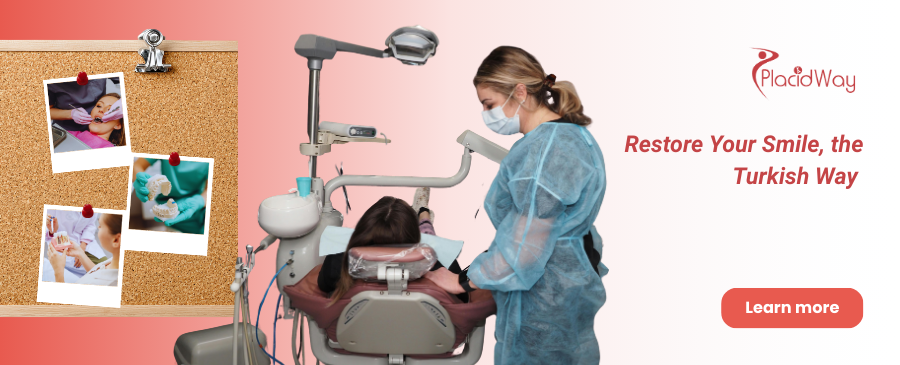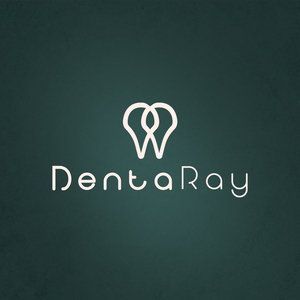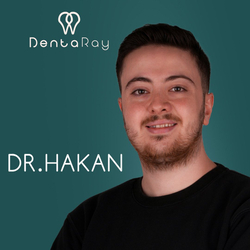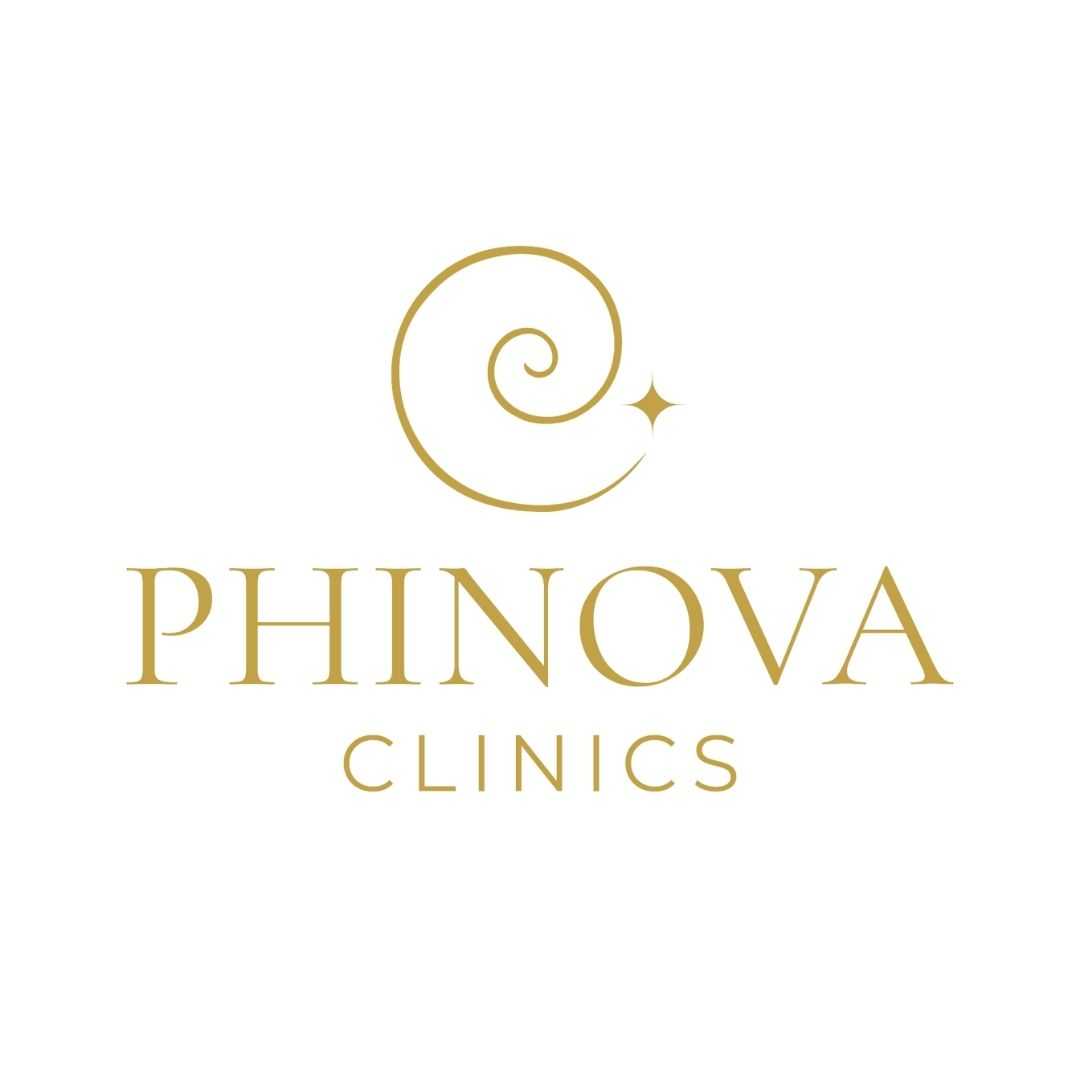Contenu
Pourquoi devriez-vous vous faire poser des implants dentaires à Istanbul, en Turquie ?
Istanbul s'est rapidement imposée comme l'une des premières destinations mondiales du tourisme dentaire. Située au carrefour de l'Europe et de l'Asie, cette métropole dynamique propose une offre unique : des soins dentaires haut de gamme, conformes aux normes européennes, à des prix accessibles à presque tous. Pour les patients du Royaume-Uni, d'Europe et des États-Unis confrontés à des coûts prohibitifs pour les soins dentaires restaurateurs, Istanbul représente la solution idéale.
Choisir Istanbul pour vos implants dentaires, c'est opter pour une qualité irréprochable sans sacrifier le prix. La ville abrite des cliniques dentaires ultramodernes équipées de systèmes de tomographie 3D, de technologies CAO/FAO et de laboratoires intégrés capables de fabriquer des couronnes en une seule journée. Les dentistes turcs sont réputés pour leur expertise technique et leur sens esthétique, et utilisent fréquemment des marques d'implants de renommée mondiale telles que Straumann, Nobel Biocare et Osstem.
Cette expérience est souvent décrite comme un « séjour dentaire de rêve ». Les cliniques proposent une expérience VIP comprenant des transferts de luxe, des séjours dans des hôtels 5 étoiles et des interprètes personnels, le tout intégré à un voyage vous permettant de profiter des vues sur le Bosphore et de la basilique Sainte-Sophie entre vos rendez-vous.
Que vous ayez besoin de remplacer une seule dent ou de refaire l'ensemble de votre bouche avec des implants All-on-4, Istanbul vous offre une solution pour un sourire parfait : efficace, abordable et réalisée avec une expertise de renommée mondiale.
La tendance du « sourire hollywoodien »
Istanbul est célèbre pour ses transformations dentaires spectaculaires, notamment le « sourire hollywoodien ». Si les implants constituent la base de la dentition, de nombreux patients les associent à des couronnes en zircone ou à des facettes E-Max pour obtenir un sourire éclatant et sans défaut. Les laboratoires turcs excellent dans la réalisation de ce type de transformation, pouvant souvent concevoir un sourire complet en seulement 5 à 7 jours.
Aperçu des principaux points
Économisez jusqu'à 70 % par rapport aux prix pratiqués au Royaume-Uni et aux États-Unis. Un implant qui coûte 2 000 £ à Londres pourrait coûter 400 £ à Istanbul.
Les cliniques utilisent des marques reconnues internationalement et approuvées par la FDA/CE, telles que Straumann, Nobel Biocare et Osstem.
La plupart des cliniques réputées offrent une garantie à vie sur la vis de l'implant elle-même, assurant ainsi une tranquillité d'esprit à long terme.
Grâce à nos laboratoires intégrés, les délais d'attente pour les prothèses sont minimes. De nombreuses interventions sont réalisées en seulement deux courtes consultations.
Utilisation standard de la tomographie volumétrique 3D et d'un logiciel de chirurgie guidée pour un placement précis et indolore des implants.
Les formules incluent souvent la prise en charge à l'aéroport, l'accompagnement personnalisé et l'hébergement, ce qui permet d'éviter les tracas logistiques.
Une histoire de l'hygiène
En Turquie, l'importance accordée à l'hygiène et au bien-être remonte à plusieurs siècles, avec les hammams ottomans. Aujourd'hui, cette obsession culturelle pour la propreté se traduit par des cliniques dentaires impeccables et stériles, qui ressemblent souvent davantage à des spas haut de gamme qu'à des établissements médicaux, et qui respectent des normes d'accréditation ISO et JCI rigoureuses.
Tarifs des cliniques dentaires d'Istanbul pour les forfaits d'implants dentaires
À Istanbul, la formule « tout compris » est synonyme de sérénité absolue. Les cliniques ci-dessous proposent des forfaits complets spécialement conçus pour les patients internationaux. Ces formules incluent généralement une consultation et des radiographies gratuites, la chirurgie implantaire et la pose du pilier, les transferts aéroport en véhicule VIP et un hébergement en hôtel 4 ou 5 étoiles à proximité. En regroupant ces services, les cliniques offrent un excellent rapport qualité-prix, vous permettant ainsi de vous concentrer sur les visites et votre convalescence plutôt que sur l'organisation.
Remarque : Les vols sont généralement la seule chose qui n'est pas incluse, mais Istanbul étant une plaque tournante majeure, les tarifs aériens sont souvent très abordables.
Prix des implants dentaires à Istanbul, en Turquie
L'avantage financier est le principal moteur du tourisme dentaire à Istanbul. Un implant en titane standard coûte entre 2 000 et 3 000 $ au Royaume-Uni ou aux États-Unis. À Istanbul, un implant de même qualité coûte entre 350 et 700 $ . Pour les restaurations complètes de la bouche, comme la technique « All-on-4 », les économies peuvent dépasser 15 000 à 20 000 $. Le tableau ci-dessous détaille les coûts habituels des implants unitaires, des couronnes et des restaurations complètes.
Conseil : Vérifiez toujours si le prix comprend le pilier et la couronne, ou seulement la vis implantaire.
Dental Implants Comparaison des coûts des centres en Istanbul, Turkey
| Fournisseur | Procédure | Prix |
|---|---|---|
| Tower Dental Clinic | Dental Implants, Dentistry | $520 |
| DentSpa - Best Dental Clinic in Istanbul | Dental Implants, Dentistry | $390 |
| Novusklinik Istanbul Turkey | Dental Implants, Dentistry | $370 |
Dental Implants Cost Comparison in Turkey
| Pays | Procédure | Prix |
|---|---|---|
| Canada | Dental Implants, Dentistry | $3000 |
| France | Dental Implants, Dentistry | $1570 |
| Germany | Dental Implants, Dentistry | $2750 |
| United States | Dental Implants, Dentistry | $3500 |
| United Kingdom | Dental Implants, Dentistry | $2500 |
Meilleures cliniques dentaires à Istanbul pour les implants
Istanbul compte des centaines de cliniques dentaires, mais la qualité y est inégale. Nous avons sélectionné des centres hospitaliers dentaires de renom et des cliniques spécialisées dans des quartiers huppés comme Ničantağı, Levent et Beğiktağ. Ces établissements se distinguent par leurs certifications ISO, leur personnel anglophone et leurs infrastructures de pointe, notamment des appareils de tomographie volumétrique 3D. Consultez leurs profils pour découvrir des photos des installations et en savoir plus sur leur expertise en chirurgie buccale.
La sécurité avant tout : choisissez des cliniques qui emploient un chirurgien buccal (spécialiste maxillo-facial) à temps plein, et non pas seulement des dentistes généralistes.
Regardez des vidéos en ligne sur le remplacement des dents à Istanbul, en Turquie.
Un sourire vaut mille mots. Dans les vidéos ci-dessous, découvrez de vrais patients qui dévoilent leur nouveau sourire et partagent leur expérience. Ils évoquent le caractère indolore de l'intervention, le confort des cliniques et la joie de pouvoir enfin manger normalement. Ces témoignages offrent un aperçu authentique de la qualité des soins et des résultats transformateurs possibles à Istanbul.
Observation : Remarquez combien de patients mentionnent la nature amicale et accueillante du personnel turc, ce qui a apaisé leur anxiété dentaire.
Implants dentaires en Turquie : avis dans les cliniques dentaires d'Istanbul
Les avis vérifiés placent régulièrement Istanbul parmi les meilleures destinations pour les soins dentaires. Les patients soulignent l'efficacité des plans de traitement, le niveau d'hygiène irréprochable et les économies substantielles réalisées. Consultez les témoignages pour découvrir leurs expériences avec les différents praticiens, le confort des hôtels partenaires et leur satisfaction générale quant à leur séjour dentaire.
Conseil pour la rédaction d'un avis : recherchez les avis mentionnant un suivi à long terme et la façon dont les implants ont résisté au fil des années.
Questions fréquentes les plus populaires sur les implants dentaires à Istanbul, en Turquie
How much are Dental Implants in Turkey?
Dreaming of a full, healthy smile but worried about the high costs of dental implants in your home country? Turkey has rapidly become a top destination for dental tourism, offering cutting-edge treatments at remarkably affordable prices. This comprehensive guide answers your most pressing questions about the cost of dental implants in Turkey, helping you navigate your options for a confident new smile. How much are dental implants in Turkey? "The cost of dental implants in Turkey is significantly more affordable than in the United States, UK, Canada, or Europe. A single tooth implant (including implant, abutment, and crown) typically ranges from €350 to €1,350 (approximately $380 to $1,460 USD). For All-on-4 dental implants, the cost per jaw can range from €2,000 to €3,500 (approximately $2,150 to $3,800 USD)." The appeal of dental implants in Turkey lies in their exceptional value. Patients can often achieve a complete smile restoration for a fraction of the cost they would incur back home, sometimes saving as much as 80-90%. What factors influence the cost of a single dental implant in Turkey? "The cost of a single dental implant in Turkey is influenced by the brand of the implant, the material of the crown, the dentist's experience, the clinic's reputation, and whether additional procedures like bone grafting are needed." When considering a single tooth implant, several elements determine the final price. The brand of the titanium implant (e.g., Nobel Biocare, Straumann vs. other quality brands) can affect cost. The material of the final crown (porcelain-fused-to-metal, full ceramic, or zirconia) also plays a significant role, with zirconia being a more aesthetic and durable, albeit more expensive, option. The expertise of your implant dentist and the standing of the clinic itself also contribute to the overall fee. Furthermore, if you require a bone graft or a sinus lift to ensure sufficient bone for the implant, these will add to the total cost. How do All-on-4 dental implant costs in Turkey compare to single implants? "While a single dental implant in Turkey ranges from €350 to €1,350, All-on-4 dental implants offer a full arch solution at a price point per jaw ranging from €2,000 to €3,500 (approximately $2,150 to $3,800 USD), representing a more cost-effective option for replacing multiple teeth." The All-on-4 concept is designed to restore an entire arch of teeth with just four implants, offering a comprehensive and efficient solution. While the upfront cost for All-on-4 is higher than a single implant, it provides a full set of fixed teeth, making it a very economical choice for patients needing extensive restoration. What is the cost range for full mouth dental implants in Turkey? "A full mouth dental implant restoration in Turkey (both upper and lower jaws, potentially using All-on-4, All-on-6, or All-on-8 approaches) typically ranges from €15,000 to €17,000 (approximately $16,200 to $18,400 USD), though this can vary based on the number of implants and prosthetic materials." For patients requiring a complete smile makeover, Turkey offers incredibly competitive prices for full mouth reconstructions. This typically involves placing multiple implants (e.g., 4, 6, or 8 per jaw) to support custom-made bridges that restore both function and aesthetics to the entire mouth. Why are dental implants so much cheaper in Turkey compared to Western countries? "Dental implants are significantly cheaper in Turkey due to a lower cost of living, favorable exchange rates, reduced operational expenses for dental clinics, high competition within the dental tourism sector, and government support for medical tourism." The affordability of dental implants in Turkey isn't a reflection of lower quality, but rather a combination of economic advantages. The overall cost of living and running a business is lower in Turkey, which translates to reduced overhead for dental clinics. The favorable exchange rate for major currencies further amplifies the savings for international patients. A highly competitive market driven by a large volume of medical tourists also encourages clinics to offer attractive pricing. Do clinics in Turkey offer all-inclusive packages for dental implants? "Yes, many reputable dental clinics in Turkey offer comprehensive all-inclusive packages for dental implants, which often cover consultations, X-rays, 3D CT scans, surgery, local anesthesia, temporary and permanent prosthetics, follow-up visits, VIP transfers, and sometimes even accommodation." These packages are designed to provide transparency and convenience, helping patients manage their budget effectively without unexpected costs. Always confirm the exact inclusions of any package you consider. What are the common additional costs for dental implants in Turkey? "Common additional costs for dental implants in Turkey may include bone grafting (if insufficient bone density), sinus lifts (for upper jaw implants), and potentially IV sedation if preferred over local anesthesia. These are typically not part of the base implant cost." While many packages are comprehensive, certain preliminary procedures might be necessary to ensure the success of your implants. Bone grafting adds around €90-€385 per unit, and sinus lifts around €190-€370. It's crucial to discuss these potential needs with your dentist during the consultation. Is the quality of dental implants in Turkey comparable to Western standards despite the lower cost? "Yes, many reputable dental clinics in Turkey adhere to high international standards of quality, employing experienced, often internationally trained implantologists and utilizing state-of-the-art technology and globally recognized implant brands (like Nobel Biocare or Straumann)." The lower cost is generally due to economic factors, not a compromise on quality. Many Turkish dentists are highly skilled specialists with extensive experience in implantology, and clinics invest in modern equipment and high-quality implant materials. What should I look for in a reputable dental clinic for implants in Turkey? "When choosing a dental clinic for implants in Turkey, look for international accreditations, dentists' qualifications and experience in implantology, transparent treatment plans and pricing, positive patient reviews, and clear communication about aftercare and warranties." Thorough research is key. Check for certifications, ask about the dentists' specific training in implant surgery, and read testimonials. Ensure the clinic provides a detailed treatment plan outlining all steps and costs, and clarify their policies on warranties for the implants and prosthetics. How long is the typical process for getting dental implants in Turkey? "The typical process for dental implants in Turkey usually involves two trips: an initial trip for implant placement (2-7 days), followed by a healing period of 3-6 months, and then a second trip for prosthetic placement (5-10 days)." This two-stage process allows sufficient time for osseointegration, where the implant fuses with your jawbone, ensuring a strong and stable foundation for your new teeth. Restoring your smile with dental implants in Turkey offers an appealing combination of affordability and quality. By understanding the costs, the influencing factors, and diligently researching reputable clinics, you can make an informed decision and embark on your journey to a confident, healthy smile. Contact PlacidWay today to explore leading dental clinics in Turkey specializing in dental implants.
What Are The Qualifications and Experience of Turkish Dentists?
As Turkey solidifies its reputation as a premier destination for world-class dental care, a primary question for prospective patients is: what are the qualifications and experience of Turkish dentists? When traveling abroad for medical procedures, it's natural and wise to seek assurance about the expertise of the professionals who will be performing your treatment. The affordability of dental work in Turkey can sometimes lead to the misconception that the standards of care or the dentists' qualifications might be lower. However, the reality is quite the opposite. The Turkish dental education system is robust, highly regulated, and aligned with international standards, producing a generation of highly skilled and experienced practitioners. The journey to becoming a licensed dentist in Turkey is a long and demanding one, involving years of intensive academic study and hands-on clinical practice. Furthermore, the system for specialization is equally rigorous, requiring dentists to pass competitive national exams and dedicate several more years to advanced training in specific fields like oral surgery, prosthodontics, or orthodontics. This commitment to education is bolstered by a strong regulatory framework overseen by the Turkish Ministry of Health and the Turkish Dental Association (TDA). This guide will provide a comprehensive overview of the entire process, from university education to specialist training and ongoing professional development, giving you the confidence that you are in highly capable and expert hands when you choose a reputable dentist in Turkey. What is the standard educational path for a dentist in Turkey? "The standard educational path to become a dentist in Turkey is a comprehensive 5-year Master's degree program at a faculty of dentistry, which is an integrated program combining undergraduate and graduate level studies." The journey to becoming a dentist in Turkey begins with a highly competitive university entrance exam. Once admitted to a dental faculty, students embark on an intensive 5-year program. This is not equivalent to a simple bachelor's degree; it's a Master's level qualification (DDS or DMD) that integrates foundational sciences with advanced clinical skills. This single-tier system ensures that every graduate has a deep and thorough understanding of dental medicine from both a theoretical and a practical standpoint. Unlike some systems where a separate graduate degree is required after an undergraduate science degree, the Turkish model is a direct path. This allows for a focused and cohesive curriculum where students are immersed in dental sciences from day one. Upon successful completion of the five years and passing all requisite exams, graduates earn the title of "Di? Hekimi" (Dentist). How rigorous is the dental curriculum in Turkish universities? "The dental curriculum is extremely rigorous, with the first two years focused on preclinical theoretical sciences like anatomy and pharmacology, and the final three years dedicated to intensive, hands-on clinical training on actual patients." The 5-year program is strategically divided to build a strong foundation before moving to complex practical applications. The structure typically looks like this: Years 1-2 (Preclinical): Students delve into fundamental medical and dental sciences. This includes anatomy, physiology, biochemistry, pharmacology, pathology, and dental anatomy. This phase provides the essential scientific knowledge required to understand oral health and disease. Year 3 (Transition): This year serves as a bridge, where students begin practical work on phantom heads and models in simulation labs while continuing advanced theoretical coursework. They start to learn the manual dexterity and techniques for procedures like fillings and crowns. Years 4-5 (Clinical): These years are spent in university dental hospitals or affiliated clinics. Students work directly with patients under the close supervision of experienced professors and specialists. They rotate through all departments—prosthodontics, periodontics, endodontics, surgery, etc.—gaining comprehensive, real-world experience in diagnosing and treating a wide variety of dental issues. Are Turkish dental degrees recognized internationally? "Yes, dental degrees from Turkish universities are recognized in many countries worldwide, especially throughout Europe, as the curriculum is aligned with the Bologna Process, ensuring compatibility with European higher education standards." The Bologna Process is a series of agreements between European countries to ensure comparability in the standards and quality of higher-education qualifications. Turkey is a full member of this process. This means that its university system, including its dental faculties, is structured to be compatible with those across Europe. This alignment facilitates academic and professional mobility for graduates. While direct registration in another country always depends on that specific country's dental board regulations (and may require passing local licensing exams), the foundational degree from a reputable Turkish university is well-respected. Many Turkish dentists use this strong educational base to pursue further training or fellowships in the USA, UK, Germany, and other leading nations, further enhancing their global credentials. How do Turkish dentists specialize in fields like oral surgery or implantology? "To become a specialist, a general dentist must pass a highly competitive national examination called the DUS (Di?hekimli?i Uzmanl?k S?nav?) and then complete an additional 3 to 4 years of full-time hospital-based training in their chosen specialty." Graduating with a 5-year dental degree makes you a general dentist. To earn the title of "Specialist," such as an Oral and Maxillofacial Surgeon or a Prosthodontist, is a separate and even more demanding path. The DUS exam is the gateway to this advanced training. It's a challenging, centralized exam, and only the highest-scoring candidates gain entry into the limited number of specialty training positions available at university hospitals. This specialty training is not a part-time course; it is a full-time residency. For instance, an aspiring oral surgeon will spend four years working exclusively in a hospital's surgery department, performing complex procedures from wisdom tooth extractions to advanced dental implant placements and bone grafting, all under the mentorship of senior surgeons. This ensures that a certified specialist has an incredibly deep level of knowledge and practical experience in their specific field. What are the most common dental specialties in Turkey? "The officially recognized dental specialties in Turkey include Oral and Maxillofacial Surgery, Prosthodontics, Orthodontics, Periodontology, Endodontics, Pedodontics (Pediatric Dentistry), and Oral Diagnosis and Radiology." When you seek treatment at a high-quality Turkish clinic, you will often find a team of different specialists. This multidisciplinary approach ensures you receive care from a dentist with the most advanced training for your specific needs. Here’s what some of these specialists do: Oral and Maxillofacial Surgeon: The expert for all surgical procedures, including placing dental implants, performing bone grafts, sinus lifts, and complex extractions. Prosthodontist: The specialist in restorative dentistry. They are experts in designing and fitting crowns, bridges, veneers, and dentures, essentially "rebuilding" a smile. Periodontist: The specialist for gum health. They treat gum disease and may also place dental implants, focusing on the health of the supporting bone and gum tissues. Endodontist: The expert on the inside of the tooth, specializing in root canal treatments. Orthodontist: The specialist for aligning teeth and jaws using braces or clear aligners. Is it mandatory for dentists in Turkey to be licensed? "Yes, it is absolutely mandatory. To practice dentistry legally in Turkey, every dentist must be registered with the Turkish Ministry of Health and be a member of the Turkish Dental Association (TDA)." There is no legal way to practice dentistry in Turkey without being officially licensed and registered. This is a crucial patient protection measure. The process involves verifying the dentist's university diploma and ensuring they have no professional or legal impediments to practicing. This registration is a public record and provides a fundamental layer of assurance for patients. Any reputable clinic will be transparent about the registration of its dentists. You have the right to ask for a dentist's registration details, and a trustworthy provider will have no hesitation in sharing this information. This system ensures a baseline of verified qualifications for every practicing dentist in the country. What is the role of the Turkish Dental Association (TDA)? "The Turkish Dental Association (TDA) is the main professional and regulatory body for dentists in Turkey. It oversees ethical standards, promotes continuous education, and advocates for the profession and public oral health." The TDA plays a vital role in maintaining the high standards of dentistry in Turkey. Membership is compulsory for all practicing dentists. The association is responsible for several key functions: Ethical Guidelines: It sets and enforces the code of professional ethics that all dentists must follow. Continuing Education: The TDA organizes and promotes congresses, seminars, and courses to ensure dentists stay up-to-date with the latest advancements in dental technology and techniques. Public Health Initiatives: It works to improve the nation's oral health through public awareness campaigns. Professional Advocacy: It represents the interests of dentists and works with the Ministry of Health on regulations and policies. How much experience do dentists in popular Turkish clinics typically have? "Dentists in clinics that cater to international patients often have extensive experience, treating a high volume of cases that allows them to hone their skills rapidly, particularly in complex procedures like full mouth restorations and dental implants." Experience is not just measured in years, but in the number and complexity of cases handled. Because Turkey is a hub for dental tourism, top clinics perform a vast number of procedures like dental implant placements and smile makeovers every year. An oral surgeon in a busy Turkish clinic might place hundreds, if not thousands, of implants annually—a volume that a dentist in a smaller local practice elsewhere might not see in a decade. This high case volume leads to a deep level of practical expertise and efficiency. They become masters of their craft, comfortable with a wide range of clinical scenarios and adept at achieving predictable, high-quality results. This hands-on experience is one of the most significant, yet often overlooked, advantages of seeking treatment from a specialist in a major Turkish dental center. Do Turkish dentists have international training or certifications? "Yes, it is very common for leading Turkish dentists, especially specialists, to have pursued additional training, fellowships, or certifications from prestigious institutions in Germany, the USA, the UK, and other European countries." The best dentists are committed to lifelong learning. Many of Turkey's top dental professionals actively seek out international training to complement their domestic education. They attend global conferences, participate in workshops with world-renowned experts, and become members of international dental organizations like the International Team for Implantology (ITI) or the American Academy of Cosmetic Dentistry (AACD). This pursuit of international knowledge ensures they are proficient in the very latest global techniques and treatment philosophies. When choosing a dentist, you can often see these international certifications proudly displayed on their clinic's website or in their office. This is a strong indicator of a dentist who is dedicated to providing care at the highest possible global standard. What should I look for to verify a dentist's qualifications? "To verify a dentist's qualifications, you should ask for their university diploma, specialization certificate if applicable, their Turkish Dental Association (TDA) registration number, and look for memberships in reputable international dental organizations." A reputable clinic and a confident dentist will be fully transparent about their credentials. Don't be hesitant to ask for this information. Specifically, you can look for: University Diploma: Verifies their 5-year dental degree. Specialization Certificate: If they claim to be a specialist (e.g., Oral Surgeon), they must have a certificate from the university hospital where they completed their 3-4 year residency. TDA Membership: Confirmation of their license to practice in Turkey. International Certifications: Look for certificates from well-known implant companies (e.g., Straumann, Nobel Biocare) or international dental societies, which show advanced training. Ready to connect with highly qualified and experienced dentists in Turkey? PlacidWay provides access to a network of pre-vetted, accredited clinics with proven track records. Find the right specialist for your needs and get a free, no-obligation quote for your treatment plan. Your journey to a confident smile begins with a trusted expert!
What Are the Sanitation Standards in Dental Clinics in Turkey for Germans?
When considering dental treatment abroad, one of the primary concerns for any patient is the standard of hygiene and safety. Turkey has rapidly emerged as a leading destination for dental tourism, attracting thousands of international patients each year. This popularity isn't just due to the affordable prices but also because of the high-quality care and stringent hygiene standards in dental clinics in Turkey. Many potential patients wonder if the lower cost means a compromise on cleanliness and safety. The reassuring answer is no. In fact, top-tier Turkish dental clinics often rival or even exceed the standards found in Western Europe and the United States. The Turkish Ministry of Health, along with various dental associations, has established a robust framework to ensure patient safety. This includes mandatory sterilization protocols, regular inspections, and the use of modern, state-of-the-art equipment. For anyone considering getting their dental work done in Turkey, understanding these standards is crucial for peace of mind. This guide will delve deep into what you can expect in terms of hygiene, the regulations in place, and how you can verify the credentials of a clinic to ensure you are in safe hands. From the moment you step into a reputable clinic, you should observe a clean, professional environment that prioritizes your well-being above all else. How are dental clinics in Turkey regulated for hygiene? "Dental clinics in Turkey are regulated by the Turkish Ministry of Health, which sets and enforces strict guidelines for hygiene, sterilization, and patient safety, often in line with international standards." Ministry of Health Oversight: The Turkish Ministry of Health is the primary regulatory body for all healthcare facilities, including dental clinics. They conduct regular and unannounced inspections to ensure compliance with national health and safety regulations. Turkish Dental Association (TDA): The TDA also plays a crucial role in upholding professional standards. Membership in the TDA requires adherence to a strict code of ethics and practice, which includes hygiene protocols. International Accreditations: Many leading clinics in Turkey voluntarily seek international accreditation from bodies like the Joint Commission International (JCI) or ISO (International Organization for Standardization) to demonstrate their commitment to global quality standards. This is a strong indicator of a clinic's dedication to excellence. Mandatory Protocols: Regulations mandate specific protocols for everything from instrument sterilization to waste disposal. This ensures a consistent level of hygiene across all licensed facilities. What sterilization methods are used in Turkish dental clinics? "Reputable Turkish dental clinics use advanced sterilization methods, primarily autoclaving, to ensure all instruments are free from bacteria, viruses, and other pathogens, following international best practices." Autoclaving: This is the gold standard for sterilization in dentistry worldwide. An autoclave uses steam under high pressure and temperature to kill all microorganisms, including spores. Every reputable clinic in Turkey will have at least one, often more, of these machines. Chemical Sterilization: For instruments that cannot withstand the high temperatures of an autoclave, clinics use chemical solutions (cold sterilization) that are approved for medical use. Disposable Instruments: To further minimize any risk of cross-contamination, clinics make extensive use of single-use items like needles, gloves, masks, and suction tips. These are disposed of immediately after being used on a single patient. Surface Disinfection: All surfaces in the treatment room, including the dental chair, countertops, and light handles, are thoroughly disinfected with hospital-grade cleaning agents between each patient appointment. Are Turkish dentists trained in infection control? "Yes, Turkish dentists and their clinical staff undergo rigorous training in infection control and hygiene protocols as part of their formal education and ongoing professional development requirements." University Education: Dental education in Turkey is a comprehensive five-year program, which includes detailed coursework and practical training on microbiology, cross-contamination, and infection control. Continuing Professional Development (CPD): Dentists are required to participate in ongoing education to maintain their licenses. These courses often include updates on the latest hygiene practices and technologies. Staff Training: It's not just the dentists; the entire clinical team, including dental assistants and hygienists, receives regular training on maintaining a sterile environment. Adherence to Protocols: In a professional clinic, you will observe the staff consistently wearing personal protective equipment (PPE) like gloves, masks, and eye protection, and following hand hygiene protocols meticulously. How can I verify a clinic's hygiene standards before my visit? "You can verify a clinic's hygiene standards by checking for international accreditations, reading patient reviews, asking for photos or virtual tours of their sterilization area, and directly questioning them about their protocols." Check for Accreditations: Look on the clinic's website for logos of accrediting bodies like JCI, ISO, or national health tourism certifications. Don't hesitate to ask for proof of these certifications. Read Patient Reviews: Look for detailed reviews on independent platforms that mention cleanliness and the clinic's environment. Past patients often comment on the hygiene standards they observed. Virtual Consultation: Many clinics offer virtual consultations. Use this opportunity to ask specific questions about their sterilization processes. You can even ask for a video tour of their facilities. Ask Direct Questions: A reputable clinic will be transparent and happy to answer your questions. Ask them: "What type of autoclave do you use?" or "How do you ensure surfaces are disinfected between patients?" Their willingness and ability to answer confidently is a good sign. What should I look for when I first visit a dental clinic in Turkey? "Upon visiting a dental clinic in Turkey, look for a clean and organized environment, staff wearing appropriate personal protective equipment (PPE), and the use of sealed, sterile instrument pouches for your treatment." Overall Cleanliness: The reception area, waiting room, and restrooms should be spotless. This is often a good first indicator of the clinic's overall attention to detail. Sterile Instrument Packs: For your treatment, the dentist or assistant should open a sealed, sterilized pouch of instruments in front of you. This confirms that the tools have been through the autoclave and have not been exposed to the open air. Use of PPE: Ensure your dentist and their assistant are wearing fresh gloves and masks for your procedure. They should change gloves if they touch anything non-sterile, like a computer keyboard. Modern Equipment: While not a direct measure of hygiene, modern and well-maintained equipment often correlates with a clinic that invests in high standards across the board. Is the water used in Turkish dental units safe? "Yes, high-quality dental clinics in Turkey use distilled or specially filtered water in their dental units to prevent contamination and ensure patient safety during procedures." Closed Water Bottle Systems: Modern dental chairs are equipped with their own self-contained water systems. This means they don't use tap water directly. Instead, they use bottles of distilled or purified water, eliminating the risk of contamination from municipal water lines. Regular Flushing: The water lines within the dental unit are regularly flushed and disinfected according to a strict schedule to prevent the buildup of biofilm. Quality Control: This is a standard practice in any modern dental clinic, and it's a key part of infection control that reputable Turkish clinics take very seriously. What about the disposal of dental waste? "Dental clinics in Turkey follow strict regulations for the disposal of medical waste, using designated biohazard containers and specialized disposal services to protect public health and the environment." Segregation of Waste: All waste is carefully segregated at the point of use. Sharps (like needles and blades) go into puncture-proof containers, while items contaminated with blood or saliva go into special biohazard bags. Licensed Disposal Companies: This medical waste is not disposed of with regular trash. Clinics have contracts with licensed companies that specialize in the safe collection, transport, and incineration of hazardous medical materials. Environmental Responsibility: Following these protocols is not just about patient safety within the clinic; it's a legal and ethical responsibility to protect the wider community and the environment. Are hygiene standards the same in all Turkish dental clinics? "No, hygiene standards can vary. While top-tier clinics catering to international patients typically have exemplary standards, it is crucial for patients to research and choose accredited and well-reviewed clinics." Do Your Research: The rise of dental tourism means there are many new clinics, and quality can differ. It is essential to choose a clinic with a long-standing reputation and proven track record. Focus on Accredited Clinics: Prioritize clinics that have invested in international accreditations. This is a reliable benchmark for quality and safety. Price vs. Quality: While Turkey offers excellent value, be wary of prices that seem too good to be true. Extremely low prices might indicate cuts in other areas, such as materials or hygiene protocols. The best value comes from finding a clinic that offers a fair price for high-quality, safe treatment. Trust Your Instincts: If a clinic is not transparent, is slow to respond to your questions about safety, or you see any red flags, it is best to look elsewhere. How has COVID-19 impacted hygiene protocols in Turkish dental clinics? "The COVID-19 pandemic led to even more stringent hygiene protocols in Turkish dental clinics, including enhanced air purification, patient screening, and increased use of personal protective equipment (PPE)." Enhanced PPE: Many clinics have made higher-level masks (like FFP2/N95) and face shields standard for their staff. Patient Screening: Expect to be asked screening questions about your health and have your temperature checked upon arrival. Air Purification: Top clinics have invested in high-efficiency particulate air (HEPA) filtration systems to continuously clean the air and reduce the presence of airborne pathogens. Social Distancing: Appointment scheduling has been adjusted to minimize the number of people in the waiting room at any one time. What is the role of technology in maintaining hygiene? "Modern technology, such as digital scanners and CAD/CAM systems, plays a significant role in hygiene by reducing the number of physical impressions and materials needed, thus minimizing potential cross-contamination points." Digital Impressions: Intraoral scanners create a 3D model of your teeth without the need for messy and reusable impression trays. This is more comfortable for the patient and inherently more hygienic. CAD/CAM Dentistry: Computer-Aided Design/Computer-Aided Manufacturing allows for crowns and veneers to be made in-house, reducing the risk of contamination that can occur when sending work to an external lab. Automated Cleaning Systems: Many clinics use washer-disinfectors to pre-clean instruments before they are placed in the autoclave, ensuring a more effective sterilization process. Are there specific hygiene requirements for surgical procedures like implants? "Yes, surgical procedures like dental implants are performed in a dedicated, sterile environment, often a specific operating room, with the highest level of aseptic technique to prevent surgical site infections." Sterile Operating Field: For implant surgery, the patient is draped with sterile cloths, and the surgeon and assistant wear sterile gowns and gloves. Single-Use Drills: Many components of the implant placement kit, including the final drills, are often single-use to guarantee sterility. Aseptic Technique: The team follows a strict protocol to ensure that nothing non-sterile comes into contact with the surgical site. This is the same standard of care you would expect in a hospital operating theatre. What if I have a concern about hygiene during my treatment? "If you have any hygiene concerns during your treatment, you should feel comfortable raising them immediately with the clinic's staff or your patient coordinator. A professional clinic will take your concerns seriously and address them." Speak Up: Your safety is the priority. Do not hesitate to ask a question or point something out if it worries you. For example, if you don't see your dentist change their gloves, it's okay to politely ask them to. Patient Coordinators: Clinics that cater to international patients have coordinators who are your point of contact. They are there to ensure you are comfortable and can address any issues on your behalf. Right to Refuse: Ultimately, you are in control of your treatment. If you are not satisfied with the hygiene standards or the response to your concerns, you have the right to stop the procedure. Ready to explore safe and high-quality dental care in Turkey? Explore PlacidWay to find accredited clinics, read patient reviews, and get personalized quotes for your dental treatment. Your journey to a new smile starts with a choice you can trust.
What Are The Risks of Dental Tourism in Turkey for German Patients?
The idea is tempting: a brilliant new smile at prices often 50-70% below German cost estimates, combined with a sunny holiday in Istanbul or Antalya. Dental tourism in Turkey has become a seemingly perfect solution for many German patients. Every year, thousands travel to get dental implants, crowns, or veneers. Clinics advertise with all-inclusive packages, state-of-the-art technology, and English-speaking support. But behind the glossy brochures and positive testimonials, there are also significant risks that often only become apparent when something goes wrong. For German patients, it is crucial to see not only the obvious cost advantages but also to understand the potential disadvantages and dangers. What happens if the new crowns don't fit or an implant gets infected? Who covers the cost of follow-up treatment? Does German or Turkish law apply? The risks of dental treatment in Turkey are diverse, ranging from medical complications and legal gray areas to unexpected follow-up costs. Thorough research and careful planning are essential to ensure that the journey to a dream smile doesn't end in a nightmare of pain, disappointment, and financial loss. This guide is intended to help you make an informed decision. What are the biggest risks of dental treatment in Turkey? The biggest risks include difficult or impossible aftercare in Germany, unclear liability and warranty issues under Turkish law, variable quality and hygiene standards, and the risk of treatment errors due to overly fast or aggressive procedures. While many treatments are successful, the potential pitfalls should not be underestimated. A central problem is aftercare. German dentists are not obliged to correct the work of a Turkish colleague and often refuse to do so for liability reasons. This means you would have to travel to Turkey again for any corrections, which incurs additional costs and time. Another significant risk lies in the legal framework. In the event of malpractice, Turkish law generally applies, which makes enforcing claims for damages extremely difficult for German patients. Language barriers, the need for a Turkish lawyer, and high litigation costs often present insurmountable hurdles. Furthermore, the two-year warranty, as is common in Germany, is not always provided in Turkey or is difficult to enforce. Medical Risks: Infections, nerve damage, ill-fitting dental prosthetics, implant loss. Quality Risks: Use of inferior materials, overly aggressive grinding of healthy tooth structure. Financial Risks: Unexpected follow-up costs for corrections, travel and accommodation costs for follow-up treatments. Legal Risks: Difficult legal enforcement, unclear warranty claims. How big is the price difference really? The price difference can be substantial, often 50-70% cheaper than in Germany. However, patients must include the total costs, including flights, accommodation, food, and potential costs for follow-up treatments, in their calculation. The lower prices are the main reason for dental tourism in Turkey. They result from lower labor and laboratory costs, as well as lower operating costs for the clinics. A high-quality dental implant, which can cost between €2,500 and €4,000 in Germany including the crown, is often offered in Turkey for €800 to €1,500. However, it is important to make an honest overall cost calculation. Travel, accommodation, and food costs are always added to the treatment costs. Although many clinics offer packages that include a hotel and transfer, flights usually have to be booked separately. You should also budget for unforeseen expenses. If complications arise and a second or third trip becomes necessary, the savings can quickly be depleted. Treatment Average Cost Germany Average Cost Turkey Dental Implant (incl. crown) €2,500 - €4,000 €800 - €1,500 Zirconia Crown €800 - €1,200 €200 - €400 Veneer (per tooth) €700 - €1,500 €250 - €450 Do the quality and hygiene standards in Turkey meet German norms? The standards are not uniform. While there are many state-of-the-art clinics with international certifications (e.g., ISO, JCI) that meet or exceed German standards, there are also practices with poor hygiene and quality. Careful clinic selection is crucial. This is one of the most critical points. There is a wide range of clinics in Turkey. Some are excellent, have the latest technology (e.g., CAD/CAM manufacturing, 3D tomography), and adhere to strict international hygiene protocols. These clinics are often certified by organizations such as the Joint Commission International (JCI) or according to ISO standards and are in no way inferior to German practices. On the other hand, there are also "black sheep" that cut corners on staff, materials, and hygiene to offer even cheaper prices. Reports of inadequate sterilization, outdated equipment, and a lack of cleanliness are not uncommon. It is often difficult for patients to separate the wheat from the chaff from a distance. A missing or deficient hygiene management significantly increases the risk of infections and post-operative complications. What happens if complications arise after the treatment? If complications arise after returning to Germany, you are largely on your own. German dentists are not obliged to make corrections. As a rule, you have to travel to Turkey again for corrections and bear the associated costs. This is the biggest concern for many German patients. If pain, inflammation, or inaccuracies in fit only occur after returning, an often frustrating odyssey begins. Your dentist in Germany can perform emergency treatment (e.g., for an acute infection) but is not obliged to correct the dental prosthesis. Many refuse to do so because they would otherwise have to assume the warranty for the entire work. The Turkish clinic will probably offer to carry out the correction on-site "free of charge." However, you will have to bear the costs of flights and accommodation yourself. This puts the initial savings into perspective. A quick and uncomplicated solution, as you are used to from your dentist at home, does not exist in dental tourism. Who is liable for malpractice in Turkey? In cases of malpractice, the treating doctor or the clinic in Turkey is generally liable under Turkish law. However, enforcing claims for damages from Germany is extremely difficult, time-consuming, and expensive. The legal pursuit of malpractice is one of the biggest hurdles. You have to prove that the Turkish doctor violated medical standards. For this, you need an expert opinion, which often also has to be prepared in Turkey. The entire process must be conducted before a Turkish court and in the Turkish language. The chances of success are low for foreign patients. Even if you win the case, collecting the damages is often problematic. Professional liability insurance, which is mandatory for German doctors, is not always available to the same extent in Turkey. Patients are therefore often left with their costs and health damages. Is there a guarantee (warranty) on Turkish dental prosthetics? Many Turkish clinics advertise guarantees, often for 5 years or longer. However, the practical enforceability of this guarantee is often difficult and usually requires another trip to Turkey at your own expense for flights and accommodation. The generous-sounding guarantee promises are an important marketing tool. In contrast to the legally anchored two-year warranty in Germany, these are voluntary guarantees from the clinic. What exactly this guarantee covers and under what conditions it applies should be recorded in writing and in detail in the treatment contract. The main problem remains the practical implementation. If a crown breaks or an implant causes problems, you have to return to the clinic to claim the guarantee. The guarantee usually only covers the dental work and the material, but not the travel and incidental costs. Clarify in advance whether the clinic cooperates with a partner dentist in Germany, which is rarely the case. Will my German health insurance cover the costs? Statutory health insurance companies in Germany generally only reimburse the German fixed subsidy for standard care for treatments in Turkey. Private and supplementary insurance policies have different regulations that must be clarified in advance. Statutorily insured persons are entitled to the so-called fixed subsidy, regardless of where the treatment takes place within the EU (and in some agreement countries, which include Turkey). However, you must submit and have a treatment and cost plan approved by your health insurance company before the treatment. Reimbursement is often only made after the treatment is completed upon presentation of the invoices. It is important to understand that only the amount that would have been incurred in Germany for comparable standard treatment is reimbursed. The savings, therefore, result from the lower overall costs in Turkey. With private and supplementary dental insurance, the reimbursement depends heavily on the respective tariff. Be sure to clarify the cost coverage in writing with your insurance company in advance to avoid unpleasant surprises. How do I find a reputable and good dental clinic in Turkey? Research thoroughly: Look for independent reviews, before-and-after pictures, international certifications (JCI, ISO), and ask about the qualifications of the doctors. Be wary of pure advertising promises and extremely cheap offers. Choosing the right clinic is the most important step in minimizing risk. Do not rely solely on the clinic's website or the placement agency. Conduct your own comprehensive research. Reviews: Look for authentic, detailed testimonials on independent portals, in forums, and social media groups. Be skeptical of exclusively perfect reviews. Certificates: Ask for certificates such as ISO 9001 or a JCI accreditation. These signal high quality and safety standards. Doctors: Find out about the training and specialization of the treating doctors. How many years of experience do they have, especially with complex cases? Before-and-After Pictures: Ask for pictures of real patients with similar starting situations. Make sure the results look natural and do not just conform to the "Hollywood smile" ideal. Communication: Test the communication. Do you receive clear, understandable answers to your questions? Do you receive a detailed treatment and cost plan in English? Are the materials used (implants, crowns) of inferior quality? Not necessarily. Reputable Turkish clinics often use the same high-quality brand implants (e.g., Straumann, Nobel Biocare) and ceramics as German practices. Be sure to get a material passport that accurately documents the products used. The concern about inferior materials is justified, as this is where there is great potential for savings for disreputable providers. However, renowned clinics know that the longevity of dental prosthetics depends on the quality of the materials and therefore use internationally recognized brand products. Ask specifically about the manufacturers of the implants and crowns. A crucial point is the material passport (implant passport). Insist on receiving a document that provides a complete record of the manufacturer, type, size, and batch number of the implant or the ceramic used. This passport is not only proof of quality but is also essential for any subsequent treatments in Germany. Why are there often reports of "aggressive grinding" for veneers? To quickly achieve a perfect "Hollywood smile," teeth are sometimes aggressively ground down to small stumps and fitted with crowns instead of veneers. This unnecessarily destroys healthy tooth structure and can lead to long-term problems such as tooth nerve damage. This procedure is a serious risk in dental treatments in Turkey, especially for cosmetic corrections. Real veneers are wafer-thin ceramic shells for which the tooth is only minimally ground down (approx. 0.3-0.5 mm) on the front side. However, to enable quick and radical aesthetic changes or to conceal minor misalignments, some dentists grind the teeth down heavily and place crowns on them. This massive loss of healthy tooth structure is irreversible and carries high risks. The trauma can damage the tooth nerve and lead to inflammation or the death of the tooth, which necessitates a root canal treatment. Clarify exactly how much tooth structure will be removed before the treatment and whether you are really getting veneers or (full) crowns. Are you ready to minimize the risks and find a safe, high-quality dental treatment abroad? Choosing dental treatment abroad doesn't have to be risky. The key is to choose the right, certified, and trustworthy clinic. Discover PlacidWay to compare internationally accredited clinics, read authentic patient reviews, and plan your medical journey with confidence and security. For More Details on How to Avoid Dental Scams Read our Guide Here: How to Avoid Dental Scams in Turkey
Best Dental Implants in Istanbul Turkey: Discover Best Clinics
Dental implants are very popular now. If you want good quality and a good price, the best dental implants in Istanbul, Turkey, are a great choice. This article examines why dental implants and dental solutions are popular in Istanbul and how the dental tourism industry has grown in Turkey. We will discuss the growing demand for dental implants, the advantages they offer, and why Istanbul has become a preferred location for dental implant procedures.Additionally, we will look at the process of getting dental implants in Istanbul and share stories from people who have experienced this life-changing treatment. If you're thinking about dental implants or just want to know more about this growing industry, this article will give you important information about the popularity of dental implants in Istanbul. The Growing Demand for Dental Implants The Cost of Dental Implants in Turkey One of the main reasons for the rise of dental implants in Istanbul is the dental implants cost. In countries like the United States, the average cost of a single dental implant can range from $3,000 to $4,500. This high cost can be a barrier for many people seeking dental implant procedures. In comparison, the cost of dental implants in Istanbul can be up to 70% cheaper. Prices range from $200 to $1,220 per tooth, making it a budget-friendly option for improving your smile.T his significant cost difference has made Istanbul a popular destination for those seeking affordable dental implant options. The Advantages of Dental Implants Besides being expensive, dental implants have many benefits compared to dental restoration, dentures or bridges. Dental implants are a permanent solution that can last a lifetime with proper care. They also look and feel like natural teeth, making them a more comfortable and aesthetically pleasing option. Dental implants are low-maintenance as they don't need any special care. Unlike dentures, they don't require regular removal and cleaning. This convenience and long-term benefits have contributed to the growing demand for dental implants in Istanbul. List of Top 5 Board Certified Dental Clinics in Istanbul Here is a list of top 5 dental clinics in Istanbul, Turkey, dental experts for providing dental implant services: Bergedent Clinic? Optimed International Hospital Tower Dental Clinic Zeynep Isilay Kaya Academic Hospital These clinics are known for providing excellent dental care. They have expert dentists, modern facilities, and are specialized in dental treatments.However, please note that this list is not exhaustive, and there are many other reputable dental clinics in Istanbul. When choosing a dental clinic, consider factors such as the dentists' expertise, the reputation of the clinic among people, and the cost of the procedure.You should speak directly to the clinic to find out more about their services and talk about what you need. I hope this information helps you in your search for dental clinics in Istanbul for dental implants. Why Istanbul? High-Quality Dental Care Istanbul has a long history of providing high-quality dental care and affordable implants. The city is home to numerous dental clinics and hospitals that offer state-of-the-art facilities and equipment. Some clinics have dentists from other countries who are skilled in new dental implant methods. Moreover, dental clinics in Istanbul adhere to strict hygiene and safety standards, ensuring that patients receive top-notch care. This combination of quality and affordability has made Istanbul a top choice for dental implant procedures. Tourism and Ease of Travelling to Istanbul Istanbul is a popular tourist destination for dental procedures, known for its rich history, culture, and stunning architecture. This makes it a good place for people who want dental implants and also want to go on vacation. Additionally, Istanbul is easily accessible from many countries, with direct flights available from major cities around the world. This accessibility has made it easier for international patients to travel to Istanbul for dental implant procedures. The Process of Getting Dental Implants in Istanbul Consultation and Treatment Planning The first step in getting dental implants in Istanbul is to schedule a consultation with a dental clinic. During this appointment, the dentist will examine your mouth and decide if you are a good fit for dental implants. If you are a good candidate, the dentist will then create a treatment plan tailored to your specific needs. This may include X-rays, 3D scans, and impressions of your teeth to ensure the implants are placed correctly. Implant Placement The next step is the actual implant placement procedure. Normally, this is done with numbing medicine, and the dentist will cut a small opening in the gum to reach the jawbone. The implant, which is a small titanium screw, will then be placed into the jawbone. After the implant is placed, the gum will be stitched back up, and a temporary crown may be placed over the implant. The healing process can take several months, during which the implant will fuse with the jawbone in a process called The merging process of the bone and implant is referred to as Bone bonding. Final Restoration Once the implant has fully fused with the jawbone, the final restoration can be placed. This is typically a custom-made crown that is attached to the implant, completing the dental implant procedure. Success Stories of Dental Implants in Istanbul Many patients who have traveled to Istanbul for dental implants have shared their success stories and positive experiences. John's Journey to Affordable Dental Implants in Istanbul Meet John, a patient who has been dealing with tooth loss for a long time. Unfortunately, he couldn't afford dental implants in his own country. After researching affordable options, John decided to travel to Istanbul for his dental implant procedure. He was impressed by the quality of care and the expertise of the dentists at the clinic he chose. Today, John is happy and grateful for the great and cheap chance he had in Istanbul that really transformed his life. Final Thoughts Dental implants in Istanbul are becoming more popular. This shows that the dental care there is good, affordable, and easy to get.Many people want dental implants, and they have heard good things about getting them in Istanbul. Istanbul is known for having good quality dental implants at a reasonable price. If you want to get dental implants, Istanbul might be a great choice for you. You can have the smile you've always wanted at a much lower price.Istanbul has lovely views, a vibrant culture, and excellent dental treatment. It's a special place to consider if you want dental implants.
Why Antalya is the Go-To Destination for Dental Tourism Among UK Patients
Antalya, situated on Turkey's breathtaking Mediterranean coast, has rapidly gained recognition as a premier destination for dental tourism, especially among UK patients. Its unique combination of world-class dental facilities, highly skilled practitioners, and remarkable affordability has made it a hotspot for those seeking quality dental care beyond their home borders. Antalya isn't just about dental treatments; it's an experience. Patients flock here not only for superior dental procedures but also to immerse themselves in the rich culture, history, and natural beauty that the region offers. From ancient ruins to pristine beaches and bustling markets, Antalya provides the perfect backdrop for a dental tourism adventure that goes beyond just oral health. The Advantages of Choosing Antalya for Dental Procedures Opting for dental procedures in Antalya presents a myriad of advantages for UK patients. Firstly, cost-effectiveness stands out prominently. The prices for dental treatments in Antalya are substantially lower compared to the UK, allowing patients to receive top-notch care without breaking the bank. Moreover, the affordability doesn't compromise the quality of service. Dental facilities in Antalya boast state-of-the-art equipment and employ highly trained professionals who adhere to international standards of practice. Additionally, accessibility and convenience play key roles. Antalya is well-connected with direct flights from major UK cities, making it easily reachable for patients seeking dental care abroad. The city's welcoming atmosphere and English-speaking staff further enhance the overall experience, ensuring patients feel comfortable and well-cared for throughout their journey. Quality of Dental Care in Antalya When it comes to dental care, quality is paramount. Antalya prides itself on maintaining exceptional standards of dental practice. Clinics are equipped with cutting-edge technology, and dentists undergo rigorous training to stay abreast of the latest advancements in the field. Many practitioners in Antalya have received international accreditation and possess extensive experience catering to diverse patient needs. Moreover, the personalized approach to patient care sets Antalya apart. Dentists take the time to understand each patient's concerns, preferences, and treatment goals, crafting tailored treatment plans to achieve optimal results. Whether it's routine dental check-ups, cosmetic procedures, or complex restorative treatments, patients can trust that they're in capable hands in Antalya. Cost Comparison: Antalya vs. UK Dental Services One of the most compelling reasons for UK patients to choose Antalya for dental tourism is the significant cost savings it offers. Dental treatments in the UK can be exorbitantly priced, often leading patients to delay or forgo necessary procedures due to financial constraints. In contrast, Antalya provides an affordable alternative without compromising on quality. For instance, procedures like dental implants, crowns, and veneers can cost up to 70% less in Antalya compared to the UK. This substantial difference allows patients to access the same level of care at a fraction of the price, freeing them from financial burdens and empowering them to prioritize their oral health. What is the Average Cost of All on 4 Dental Implants in Antalya? All on 4 dental implants cost in Turkey depends on the facilities provided by the clinics. The price ranges between $2,500 to $7,000 approximately. Country Procedure Price Turkey All on 4 Dental Implants $2,500 - $7,000 United Kingdom All on 4 Dental Implants $15,500 United States All on 4 Dental Implants $25,000 The Attractions and Amenities of Antalya for Dental Tourists Beyond its reputation as a dental tourism hub, Antalya offers an array of attractions and amenities to enrich the patient experience. Patients can indulge in leisurely strolls along the picturesque coastline, explore ancient ruins dating back thousands of years, or immerse themselves in the vibrant local culture at bustling markets and traditional eateries. For those seeking relaxation and rejuvenation post-treatment, Antalya's luxurious resorts and spa facilities provide the perfect retreat. From invigorating spa treatments to tranquil beachfront settings, patients can unwind and recharge amidst stunning natural surroundings, ensuring their dental tourism experience is both fulfilling and rejuvenating. Testimonials and Success Stories from UK Patients The true measure of Antalya's appeal as a dental tourism destination lies in the testimonials and success stories of UK patients who have experienced its benefits firsthand. Countless individuals have shared glowing reviews of their experiences, praising the professionalism, expertise, and hospitality of dental practitioners in Antalya. Patients often highlight not only the exceptional quality of dental care they received but also the seamless experience from initial consultation to post-treatment follow-up. Many express gratitude for the cost savings afforded by choosing Antalya, allowing them to undergo life-changing dental procedures without financial strain. How to Plan Your Dental Tourism Trip to Antalya Planning a dental tourism trip to Antalya is a straightforward process with careful consideration and guidance. Here's a step-by-step guide to help UK patients navigate their journey: Research Reputable Dental Clinics: Begin by researching reputable dental clinics in Antalya, focusing on factors such as accreditation, patient reviews, and services offered. Schedule Consultations: Reach out to selected clinics to schedule initial consultations, allowing you to discuss your treatment needs, expectations, and any concerns you may have. Arrange Travel and Accommodations: Once you've chosen a clinic, make travel arrangements including flights and accommodations. Many clinics offer assistance with travel logistics and can recommend nearby hotels or resorts for your stay. Explore Leisure Activities: Take advantage of your time in Antalya to explore the city's attractions and amenities. Whether it's sightseeing, shopping, or dining, immerse yourself in the local culture and create unforgettable memories. Follow Up Care: After completing your dental treatment, follow any post-procedure instructions provided by your dentist and schedule any necessary follow-up appointments. Maintain good oral hygiene practices to ensure long-lasting results. By following these steps and leveraging the resources available, UK patients can plan a successful and rewarding dental tourism trip to Antalya, reaping the benefits of quality dental care amidst a backdrop of unparalleled beauty and hospitality. Book Appointment Ready to experience the benefits of dental tourism in Antalya? Contact us today to learn more about our dental services and start planning your trip to Antalya for quality dental care at affordable prices.
Meilleur dentiste spécialisé en implantologie à Istanbul, Turquie
La compétence de votre dentiste est tout aussi importante que la marque de l'implant. Nous vous proposons des chirurgiens buccaux et des prosthodontistes de renom à Istanbul, forts d'une longue expérience dans les cas complexes. Ces spécialistes réalisent des milliers d'interventions implantaires chaque année, garantissant un niveau d'expertise difficilement égalable en médecine générale.
Chirurgiens buccaux spécialisés
Experts en chirurgie maxillo-faciale
Contrairement aux dentistes généralistes, nos spécialistes recommandés possèdent souvent un diplôme d'études supérieures en chirurgie maxillo-faciale. Cette qualification est essentielle pour la pose d'implants, notamment dans les cas complexes nécessitant une greffe osseuse ou un comblement sinusien.
Dentistes esthétiques
Maîtres du design du sourire
Pour la partie visible de la dent (la couronne), il vous faut un artiste. Les dentistes esthétiques turcs sont réputés pour leur technique de conception numérique du sourire (DSD), qui leur permet de créer un sourire sur mesure parfaitement adapté à la forme de votre visage, loin des sourires « chiclet » standardisés.
Expérience à grand volume
Des milliers de cas réussis
L'expérience est primordiale. Les meilleurs implantologues d'Istanbul posent des milliers d'implants par an. Ce volume important d'interventions leur permet de gérer les complications avec aisance et vous garantit une procédure plus rapide et plus efficace.
Meilleurs endroits à visiter à Istanbul pour une chirurgie implantaire dentaire
Rapport coût-bénéfice inégalé
La Turquie offre le point idéal du tourisme dentaire : des standards européens haut de gamme à un prix bien inférieur.
Des coûts opérationnels plus faibles, des taux de change favorables et des incitations gouvernementales permettent aux cliniques de proposer des implants haut de gamme (Straumann, Nobel) à un prix 70 % inférieur à celui pratiqué au Royaume-Uni ou aux États-Unis, sans faire de compromis sur l'hygiène ou la technologie.
Adoption des technologies de pointe
Le secteur dentaire d'Istanbul est incroyablement concurrentiel, ce qui pousse les cliniques à investir dans les technologies les plus récentes pour attirer les patients.
Il est courant d'y trouver des cliniques équipées de radiographies panoramiques, de tomographie volumétrique 3D, de dentisterie laser et de machines de fraisage CAD/CAM internes, surpassant souvent l'équipement que l'on trouve chez les dentistes de quartier à l'étranger.
L'appel aux « vacances dentaires »
Istanbul est l'une des villes les plus visitées au monde, offrant un mélange exceptionnel d'histoire, de culture et de gastronomie.
Les patients peuvent allier leur traitement à des vacances, en visitant le Grand Bazar ou en faisant une croisière sur le Bosphore entre leurs rendez-vous. L'excellente infrastructure hôtelière transforme l'ensemble du parcours médical en un véritable voyage d'agrément.
Obtenez une consultation gratuite pour vos implants dentaires à Istanbul, en Turquie !
Ne laissez pas le coût des soins dentaires vous empêcher de sourire. PlacidWay vous met en relation avec les meilleures cliniques dentaires agréées d'Istanbul pour une expérience dentaire sûre, abordable et de qualité.
Vérification de la clinique
Nous vérifions rigoureusement les cliniques en fonction de leurs normes d'hygiène, de leurs certifications ISO et des qualifications des chirurgiens afin que vous puissiez réserver en toute confiance.
Devis personnalisés
Obtenez des plans de traitement détaillés et des estimations de prix transparentes auprès de plusieurs cliniques afin de comparer vos options.
Consultations gratuites
Nous facilitons les consultations en ligne gratuites (examen des radiographies) avec des dentistes avant votre vol, afin que vous sachiez exactement à quoi vous attendre.
Soutien logistique
Notre équipe vous aide à coordonner les transferts depuis l'aéroport, les réservations d'hôtel et les transferts vers les cliniques pour un voyage sans tracas.
Défense des droits des patients
Nous sommes à vos côtés depuis votre première demande jusqu'à votre retour chez vous, en veillant à ce que vos questions trouvent une réponse et que vos besoins soient satisfaits.
Résultats concrets
Consultez les avis vérifiés des patients et les photos avant/après pour constater la qualité du travail réalisé par nos partenaires.
Votre sourire de rêve est plus proche et plus abordable que vous ne le pensez. Contactez PlacidWay dès aujourd'hui pour un devis gratuit et sans engagement et commencez votre parcours dentaire à Istanbul.
Obtenez votre devis dentaire gratuit










.png)











.png)
.png)

.png)



.png)


Share this listing